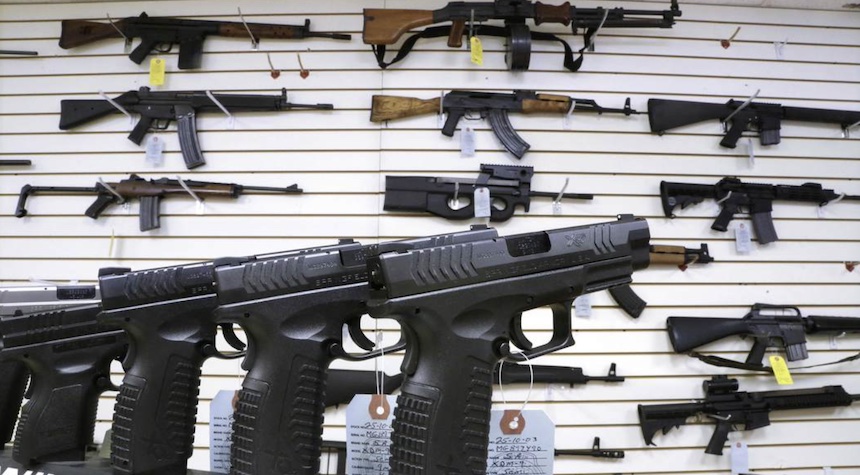Illinois’ ban on semi-automatic weapons will likely remain in effect for the foreseeable future. The United States Supreme Court declined to stop enforcement of the law while lower courts are arguing the cases.
This is a blow to gun rights advocates, but the battle isn’t over yet.
The U.S. Supreme Court has issued two orders this past week denying requests to block the enforcement of Illinois’ ban on assault weapons, while lower courts continue to hear challenges to the law.
On Wednesday, Justice Amy Coney Barrett denied a request by Republican state Rep. Dan Caulkins from Decatur and others who had lost their challenge against the Illinois Supreme Court earlier this year.
On Thursday, the court’s full bench issued a non-signed order, denying the request for injunction made by the National Association for Gun Rights. The plaintiff in the lawsuit that challenged both the statewide and local bans in Naperville, was the National Association for Gun Rights.
NAGR submitted its request on Nov. 29, while waiting for the 7th Circuit Court of Appeals’ decision to reconsider its earlier ruling upholding the constitutionality of the law. The 7th Circuit Court of Appeals said on Monday that it would not be reconsidering its earlier decision upholding the law as constitutional.
Gov. J.B. Pritzker hailed the Supreme Court decision, calling it “a historic victory for Illinois families and communities.”
Taking on the gun lobby and passing an assault weapon ban was never going to be easy, but it was always the right thing to do.
Today is a historic win for Illinois communities and families. https://t.co/68FhyhBTTN
— JB Pritzker (@JBPritzker) December 14, 2023
The state Supreme Court had upheld a gun ban in August after finding it to be constitutional.
The Illinois Supreme Court, in a decision of 4-3, upheld the state’s ban on “assault weapons”.
The Illinois Supreme Court upheld Illinois’ ban on semi-automatic weapons that were used in mass murders across the country.
The high court ruled Friday that, in a decision of 4-3, the Protect Our Communities Act did not violate either the constitutional guarantee of equal protection under the law or the state constitution’s prohibition on special legislation.
The court also ruled that Dan Caulkins of Decatur, a Republican state representative, and other gun owners who filed the lawsuit waived earlier their claim that the law violates the Second Amendment right to own firearms. They could not bring this issue before the Supreme Court.
The Second Amendment claim, however, is still alive in several federal suits filed in southern Illinois. These were later consolidated, and are awaiting an appeals court decision.
There is still reason for optimism. Illinois’ sheriffs refused to enforce the ban when it was first passed, so at least some gun-owners in the state have their rights protected.
Moreover, now that the Bruen decision is a reality it seems unlikely that the law can survive the many legal challenges to which it will be subjected. According to the Supreme Court’s Bruen decision, gun control laws must be in line with America’s long-standing tradition of firearm regulation.

